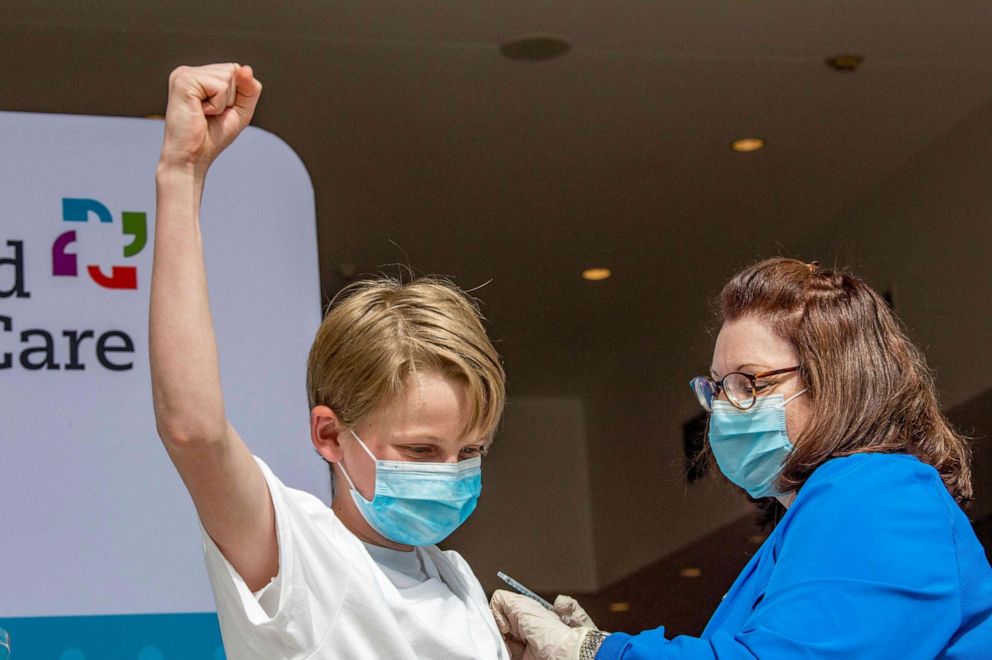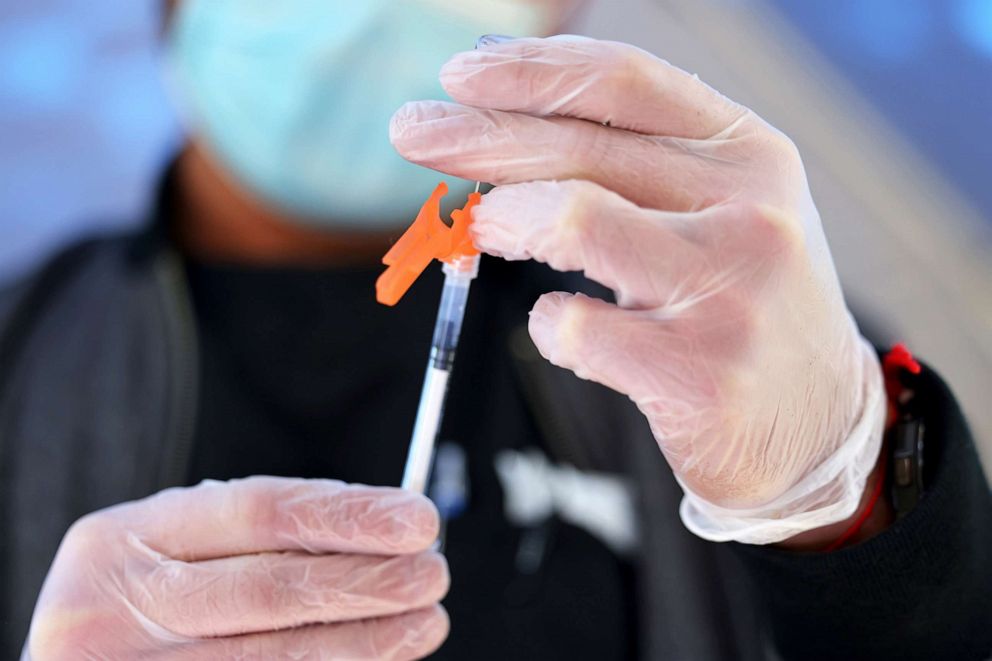In final step, CDC director signs off on Pfizer vaccine for kids 5 and up
Doses could be available as soon as Wednesday, with many more next week.
Another 28 million Americans are able to get vaccinated against COVID-19 after the CDC officially recommended the Pfizer shot for 5- to 11-year-olds on Tuesday night.
"Together, with science leading the charge, we have taken another important step forward in our nation’s fight against the virus that causes COVID-19. We know millions of parents are eager to get their children vaccinated and with this decision, we now have recommended that about 28 million children receive a COVID-19 vaccine," CDC Director Rochelle Walensky said in a statement.
A committee of independent experts advising the Centers for Disease Control and Prevention voted unanimously on Tuesday to recommend the Pfizer vaccine for children 5-11, checking off one of the last boxes in the authorization process, and Walensky's final recommendation Tuesday night capped off the process.
Shots can be administered immediately, but are not expected to kick into high-gear until Nov. 8, when the White House says Pfizer’s pediatric vaccines will be more widely accessible across the nation.
About 15 million doses are expected to ship out over the next week. The majority, about 10 million, will be available at pediatrician's offices, children’s hospitals, community centers and mass vaccination sites. About 5 million doses will go to pharmacies.
In a statement, President Joe Biden said: "It will allow parents to end months of anxious worrying about their kids, and reduce the extent to which children spread the virus to others. It is a major step forward for our nation in our fight to defeat the virus."
Many parents are anxious to protect their children after the delta surge over the summer led to increased cases and hospitalizations among kids. Though the variant is not more deadlier, it is more transmissible -- and because kids are unvaccinated, the variant rocketed through schools and camps.
The most recent data from Pfizer's clinical trials found that the vaccine for children ages 5-11 was nearly 91% effective against symptomatic illness.
For kids, the vaccine will be given at a smaller, one-third dose.

The vaccine also appears safe. The company says none of the children in clinical trials experienced a rare heart inflammation side effect known as myocarditis, which has been associated with the mRNA vaccines in very rare cases, mostly among young men.
The CDC's expert on myocarditis, Dr. Matt Oster, a pediatric cardiologist at Children’s Healthcare of Atlanta, said unequivocally at Tuesday's meeting that he believes the benefits of the vaccine for 5-11 year-olds outweighs the potential risks of vaccine-related myocarditis.
"The bottom line is getting COVID I think is much riskier to the heart than getting this vaccine, no matter what age or sex you have," Oster told the committee.
Meanwhile, the risks of not getting vaccinated loom far larger than the rare and mostly mild vaccine side effects seen in some adolescents, CDC's Dr. Sarah Oliver said.
For every million pediatric vaccinations, more than 18,500 COVID cases and 80 hospitalizations could be prevented, Oliver estimated, using a model based on cases throughout the pandemic so far. If cases returned to the peak seen during the delta variant, over 58,200 COVID cases and over 220 hospitalizations could be prevented.
"There could also be possible prevention of transmission and a greater confidence in a safer return to school and social interactions," Oliver said. "Wide use of an effective vaccine would reduce the public health burden of COVID in children five through 11 years of age."
Other CDC committee members agreed.
"I think the data supports that we have one more vaccine that saves lives of children and that we should be very confident to employ it to the maximum," said Dr. Sarah Long, a member of the CDC's committee and professor of pediatrics at Drexel University.
The authorization process began last week, when a panel of experts at the Food and Drug Administration reviewed all of the efficacy and safety data and then voted nearly unanimously to authorize the vaccine. On Friday, the vaccine was authorized by FDA acting commissioner Janet Woodcock, which allowed the process to move over to the CDC for the final steps before shots could be administered.

Whether parents will embrace the vaccine for their kids is still a question. In an October poll, the Kaiser Family Foundation found that about a third of parents with kids ages 5-11 were willing to vaccinate their kids right away, while another third wanted to "wait and see." The figures represented a slight uptick in vaccine acceptance among parents of elementary-school-aged kids since July, but they have stayed steady since September.
Woodcock told reporters on Friday that she hoped parents would quickly see the benefits.
"We certainly hope that as people see children getting vaccinated and being protected, being able to participate in activities without concern, that more and more people will get their kids vaccinated," she said.
And she emphasized the urgency of preventing the conditions that can come with COVID diagnoses in kids.
"As a parent, if I had young children this age group I would get them vaccinated now. I would not want to take the risk that they would be one of the ones who would develop long COVID, who would develop multi-system inflammatory syndrome or have to be hospitalized from from the virus," Woodcock said.
ABC News' Anne Flaherty contributed to this report.




